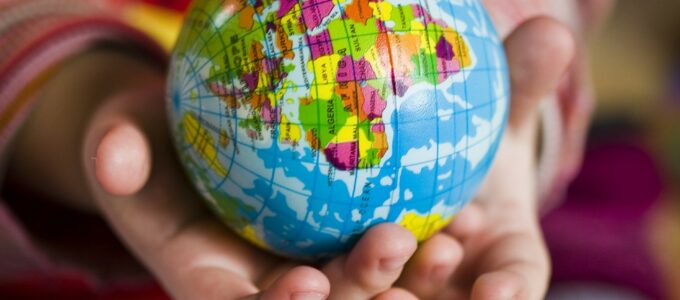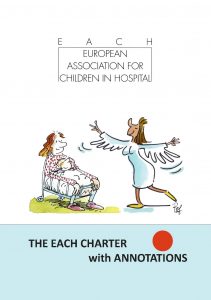
Children and young people have the right to the best possible health and COP26, the 2021 United Nations climate change conference, provides an ideal platform to discuss this right in relation to climate change. Rising temperatures and decreased air quality affect children and young people by increasing asthma attacks and allergies, heart and lung disease, worsening pregnancy outcomes, creating food insecurity, increasing mental health problems, developmental delays, and changes in their genetic makeup.
“The health and wellbeing of children and young people lie at the heart of what we do,” said Helen Forrest, Chief Executive of Children’s Health Scotland. “Climate change undoubtedly has an impact on health and wellbeing and therefore the right of children and young people to the best possible health (UNCRC 24). Ahead of COP26 we hear the voices of children and young people calling out for change (UNCRC 12) and fully support their efforts to work together to protect our planet and people and ensure a greener, more resilient future for us all.”
Why are children and young people across the world taking a stand against climate change?
There is a significant amount of research which finds that children and young people are negatively affected by global warming for a range of reasons, which leads to many young people feeling determined to make their voices heard. A survey of 10,000 young people found that 95% are worried by climate change, with a quarter of those sampled feeling “extremely worried”.
Climate Anxiety is a term which describes the fear and worry that people experience surrounding the current climate situation. 45% of the young people surveyed said their feelings about climate change had negative effects on their daily lives.
Stress can be especially harmful to young people whose growing brains make them especially vulnerable long term developmental consequences. Furthermore, this study was conducted across 10 countries and found that those who felt most worried were also those most at risk, such as Portugal where wildfires caused by global warming are severe. Young people feel that governments are not doing enough to reduce climate change, which is incredibly worrying for young people as they will suffer the most from climate change in the future.
As well as psychological effects of climate change, there are many physical side effects that can be seen now, such as increase temperature and humidity leading to more cardiovascular and infectious disease problems. In the areas most affected by climate change, such as warmer areas, places by the sea, or less economically developed countries, there are higher rates of heat waves, forest fires and floods. These environmental events can cause damage to homes and cause problems for crop fields, which leads many communities to not have sufficient shelter and food (UNCRC 27 and 36). As a result of climate change, half of the world’s children are at risk of not having their basic human rights met. The damage caused to everyday life puts not only children and young people under unhealthy amount of stress, but also pregnant mothers, whose stress will transfer hormonally to their unborn babies. Climate change is not only negatively affecting our current young people, but it will also affect the next generation yet to be born.
How can we help children and young people with their climate anxiety?
This article from National Geographic gives some helpful and realistic way to sooth children’s fears, including taking some of weight off their shoulders by reassuring them that climate change is not their fault. The article also suggests talking about solutions to climate change and letting the child know that there is still hope to fix climate change. Hopefully, the voice of young people will be heard (UNCRC 12) and the outcome of COP26 will leave children and young people everywhere feeling optimistic about the future of our planet.
COP26 is the 2021 United Nations climate change conference, where COP stands for “Conference of the Parties” and this year’s will be the 26th annual summit. It will take place in Glasgow from 31 October to 12 November and will see many world leaders and important figures discuss the urgency of getting climate change under control.
